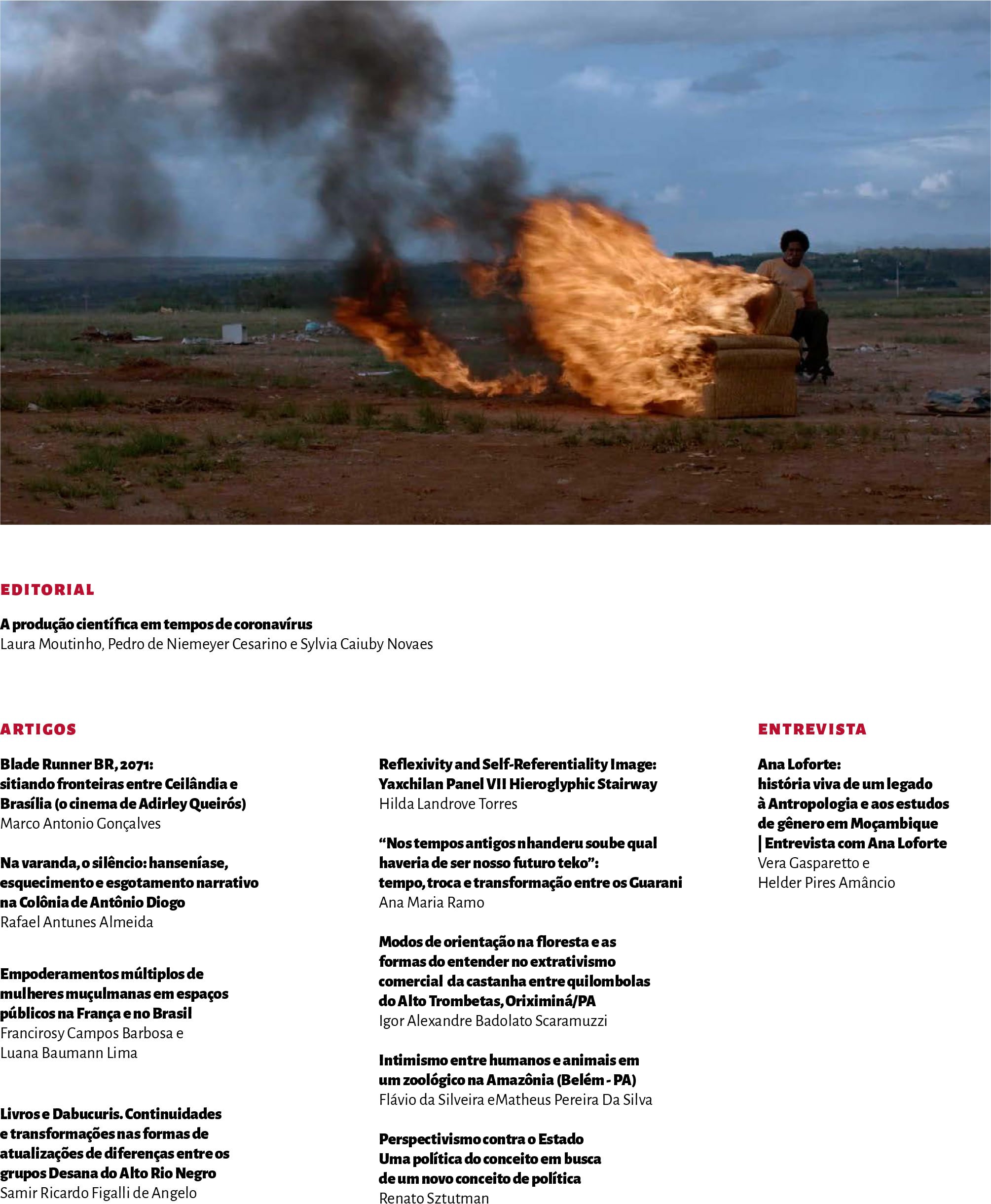Modes of Forest Orientation and Forms of Knowing (Entender) in the Commercial Extrativism of Brazil Nuts Among Quilombolas in Alto Trombetas, Oriximiná/PA, Brazil
DOI:
https://doi.org/10.11606/2179-0892.ra.2020.168623Keywords:
Knowledge, Amazon, Guidance, Quilombolas, NatureAbstract
Brazil nuts extractivism has been the main commercial activity for the Quilombola communities of Alto Trombetas, from its arrival in the region, in the beginning of the 19th century, until today. Brazil nut trees within Quilombola territories are today communal property, and to avoid competition extractivists are very careful with the transmission of their knowledge, while often attempting to keep a specific fragment of the forest for their own use. Underlying their efforts at exclusivity (of parts of the forest and their knowledge), the local concept of entender (knowing or to know) becomes pivotal. Built upon the daily experiences of long-term commercial extractivists, and often very localized, ‘knowing’ a Brazil nut forest is associated not only with this activity, but also with others, essential to surviving such as hunting, fishing, gathering and orienting oneself in these environments. The article explores ethnographically some of the abilities necessary for Brazil nut extrativism in the Quilombola territories, particularly the ways of orienting oneself in the forest, and seeks to demonstrate how entender is produced and constantly renewed.
Downloads
References
ACEVEDO, Rosa & CASTRO, Edna. 1998. Negros de Trombetas: guardiães de matas e rios. 2ª ed. Belém: Cejup/UFPA-NAEA.
ANDRADE, Lúcia M.M. de. 1995. “Os quilombos da bacia do rio Trombetas: breve histórico”. Revista de Antropologia, v. 38, n.1:79-99.
CABRAL DE OLIVEIRA, J.C. 2012. Entre plantas e palavras. Modos de constituição dos saberes entre os Wajãpi (AP). São Paulo, tese de Doutorado, Universidade de São Paulo.
COULY, Claire Couly. 2009. La biodiversité agricole et forestière des Ribeirinhos de la forêt nationale du Tapajós (Pará): usages, gestion et savoir. Tese de Doutorado em Etnobiologia, Muséum National d ́Histoire Naturelle de Paris.
FUNES, E.A. 2009. “Mocambos: Natureza, Cultura e Memória”. História Unisinos, v. 13 n.2: 147-153.
FUNES, E.A. 2007. “Comunidades Negras - resistência e Africanidade na Amazônia Brasileira”. Territórios e Fronteiras, v. 7: 47-72.
FUNES, E.A. 2004. “Mocambos do Trombetas: História, memória e identidade”. EA Virtual (Barcelona), Barcelona-Espanha, v. 1, n.1: 05-25.
FUNES, E.A. 1999. “Áreas das cabeceiras - terra de remanescentes - Silêncio, Matá, Castanhaduba, Cuecé, Apui e São José”. Boletim da Comissão Pró Índio, São Paulo, v. 1: 01-39.
FUNES, E.A. 1995. “Nasci nas matas nunca tive senhor: história e memória dos mocambos do Baixo Amazonas. São Paulo, tese de Doutorado, Universidade de São Paulo.
GELL, Alfred. 1985. “How to read a map: remark on the pratical logic navigation”. Man, (NS) v.20: 271-286.
INGOLD, Tim. 2010. “Da transmissão de representações à educação da atenção”. Educação, Porto Alegre, v. 33, n. 1: 6-25.
INGOLD, Tim. 2005 “Jornada ao longo de um caminho de vida: mapas, descobridor-caminho e navegação”. Religião e Sociedade, v.26, n.1: 76-110.
INGOLD, Tim. 2000. The Perception of the Environment: Essays on Livelihood, Dwelling and Skill. London, Routledge.
RAMIREZ, Henri & SHEPARD JR. Gleen. 2011. “Made in Brazil: Human Dispersal of the Brazil Nut (BEL) in Ancient Amazônia”. Economic Botany, v.65, n.1: pp.44-65.
SCARAMUZZI, I. 2016. Extrativismo e as Relações com a Natureza em Comunidades Quilombolas do Rio Trombetas/Oriximiná/Pará. Campinas, tese de doutorado, Universidade Estadual de Campinas.
Downloads
Published
Issue
Section
License
Copyright (c) 2020 Revista de Antropologia

This work is licensed under a Creative Commons Attribution 4.0 International License.
Authors who intend to publish in this journal must agree with the following terms:
- a) Authors retain copyright and grant the journal the right of first publication. The work is simultaneously licensed under the Creative Commons Attribution License, which allows the work to be shared as long as the author and the initial publication in this journal are appropriately credited.
- b) Authors are authorized to sign additional contracts for non-exclusive distribution of the version of the work published in this journal (e.g., to publish it as a book chapter), as long as the author and the initial publication in this journal are appropriately credited.
- c) Authors are allowed and encouraged to publish and distribute their work online (e.g. on their personal webpage) after the editorial process, for this can generate productive changes as well as increase the impact and citation of the work. See The Effect of Open Access Publications.




